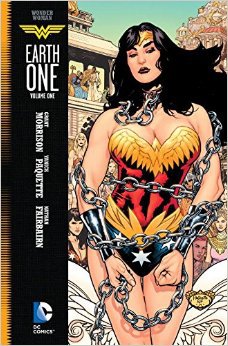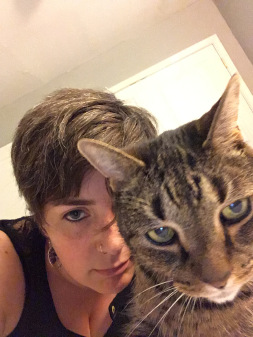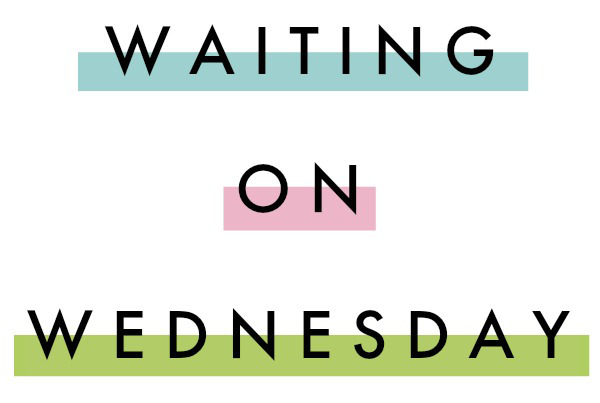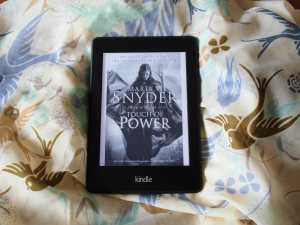Benjamin Law, Moral Panic 101: Equality, acceptance and the Safe Schools scandal (Quarterly Essay 67, 2017)
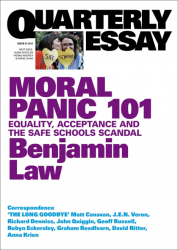 In conversation with David Marr about this Quarterly Essay at the Seymour Centre in Sydney recently, Benjamin Law produced a wad of A4 paper at least 4 centimetres thick printed on both sides. It was a print-out of articles published in the Australian covering, or at least mentioning, the Safe Schools program over a single year, roughly one every two days. The stories, he says in this essay, ‘were at best inadequate or misleading, at worst simply false’.
In conversation with David Marr about this Quarterly Essay at the Seymour Centre in Sydney recently, Benjamin Law produced a wad of A4 paper at least 4 centimetres thick printed on both sides. It was a print-out of articles published in the Australian covering, or at least mentioning, the Safe Schools program over a single year, roughly one every two days. The stories, he says in this essay, ‘were at best inadequate or misleading, at worst simply false’.
The essay summarises the Australian‘s campaign and its effects. It attempts to correct the record about the nature of Safe Schools, which was not a vile, child-corrupting Gay Marxist propaganda program, but a well-thought out, minimalist initiative to help schools counter bullying of lesbian, gay, bisexual, transgender, intersex and queer children, launched by the Abbott government in 2014, having been committed to by the Gillard government in its last weeks. The essay lays out much-needed information about where the medical profession and the law in Australian stand in relation to young people who identify as transgender, about queer theory, about the significance of same-sex marriage in combatting the systemic oppression of LGBTIQ people. Perhaps most tellingly, it reports on conversations with some of the young people whose wellbeing Safe Schools sought to protect (and still seeks, though not in all states and without federal funding) – something not done by any of the Australian‘s 200 or more articles.
Moral Panic 101 could be a sequel to Robert Manne’s Quarterly Essay 43, Bad News: Murdoch’s Australian and the Shaping of the Nation (2011), which provided an epigraph for one of its sections:
In these campaigns, [the Australian‘s] assigned journalists appear to begin with their editorially determined conclusion and then seek out evidence to support it.
Here, extracted from Law’s essay, is a dishonour roll of journalists who, either as right-wing culture warriors or as uncritical relayers of the RWCWs’ ‘facts’, contributed to the News Corp’s campaign:
- Miranda Devine, ‘the Daily Telegraph‘s resident prophet of doom’
- Rita Panahi, ‘Herald Sun columnist and Twitter firebrand’
- Natasha Bita, ‘a Walkley Award–winning journalist who has worked across News Corp’s mastheads since the 1990s’
- the Herald Sun‘s Susie O’Brien
- The Australian‘s Rebecca Urban, who wrote thirty-one stories and 17 thousand words about Roz Ward and Safe Schools in one year, ‘all of which were critical’
- Andrew Burrell, who co-wrote at least one of Rebecca Urban’s articles.
No one was surprised when News Corp went after Benjamin Law the week this essay was published. Given that he’s such a sweet presence they had to search, but they found an ugly tweet, misinterpreted it to make it infinitely uglier, and banged on about it for days, to the extent that Lyle Shelton could give him as an example of the ugliness of the Yes campaign (few reasonable people would see the goodlooking, charming, witty and intelligent Mr Law as in any way ugly). The most astonishing moment in the Marr–Law conversation at the Seymour Centre was that both men revealed that they still subscribe to the Australian.
It’s easy to become fascinated by the illogic, hypocrisy and dishonesty of some commentators, journalists and public figures (I don’t follow @realdonaldtrump on Twitter but I regularly go looking to see what he’s tweeted). What Law has done in this essay, in carefully documenting, analysing and refuting the misrepresentations, goes well beyond that fascination, and has earned our gratitude.
We can also be grateful for his discussion of transgender issues, based mainly on interviews with young transgender people and with Dr Elizabeth Riley, who has worked with gender-variant young people for about a decade. Contrary to what some parts of the press might imply, for example, medical experts in Australia will not prescribe irreversible hormone treatment before puberty. And no Australian minor can commence irreversible hormone treatment without a determination from the Family Court that ‘the child had sufficient intellectual sophistication to understand what was involved, and all the possible consequences’.
Few things can trigger emotional responses more than the accusation of harm to children, especially harm that involves sex. It’s an extraordinary achievement of this essay that, while it leaves you in no doubt where it stands, it remains judicious, calm, reasonable and open to complexity. It doesn’t feel like the last word on the subject, but it’s a good one.
—–
A final note. Like most current or retired editors or proofreaders, I tend to be distracted by my own pedantry. If I hadn’t been a fan of Benjamin Law and editor Chris Feik before, I would have been when I read this sentence, talking about queer theory, which says ‘discomfort’ where far too many people would have ‘discomfit’, thereby depriving us of the other useful, but now dying meaning of ‘discomfit’:
Share this:After all, one of its central tenets is that it’s supposed to discomfort people by upending how we perceive norms, and by interrogating the social scaffolding around gender and sexuality we take for granted.

